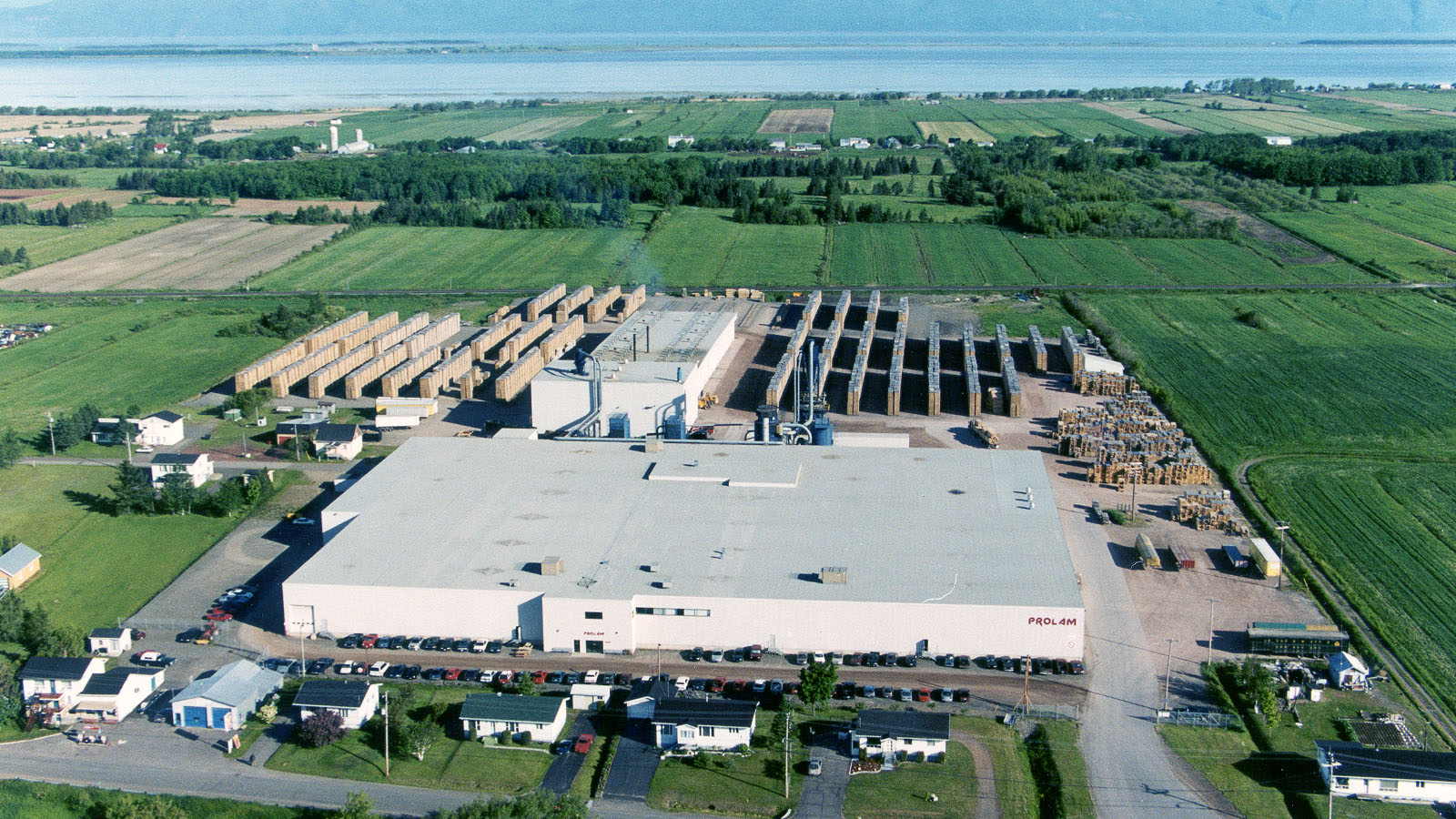
Prolam: A history of innovations in the making
#P.U.R #Waxin #Zig-Zag
Read about Prolam’s history from the Nilus Leclerc time to today in an interview with Benoit Risi, Prolam’s General Manager.
Read more
While Prolam was founded in 1997 as a manufacturer that specialized in wood trailer floors, its roots of innovation actually began at the beginning of the 20th century. We sat down with Prolam’s General Manager, Benoît Risi, to learn more about how the business evolved into the innovation powerhouse it is today.
A: The company actually got its beginnings at the start of the 20th century under the name Nilus Leclerc, which was founded by M. Léonius Leclerc. The first plant (40 ‘ X 120 ‘) was built in 1906 in order to manufacture church benches and looms. As the decades passed and ownership changed, the business stopped producing church benches and looms to enter the residential hardwood flooring sector in the beginning 1980s. By the end of the 1980s, the company was also produced hardwood trailer floors.
A: I started to work in the hardwood industry for M. Pierre Thabet in May 1992. Five years later, M. Thabet bought the assets of Nilus Leclerc and founded Prolam. In July 1997, we started commercializing hardwood trailer floors only under the Prolam brand and, in December of that same year, I officially became its General Manager.
A: Our priority was, without a doubt, gaining better control over the entire manufacturing process to improve product quality and shop floor efficiency. We implemented a lab and developed a quality management system. We also realigned our manufacturing processes.
Significant investments were made—both in acquiring new state-of-the-art equipment and actually making equipment from scratch ourselves when we couldn’t find what we needed on the market. And that last point is extremely important. We had a lot of ingenious ideas for equipment to optimize our production lines. But not much was available that would fit our manufacturing process. We hunkered down and designed many innovative systems that are still in operation today.
We firmly believe that Prolam’s culture of innovation stemmed from a need to push the technology envelope further.
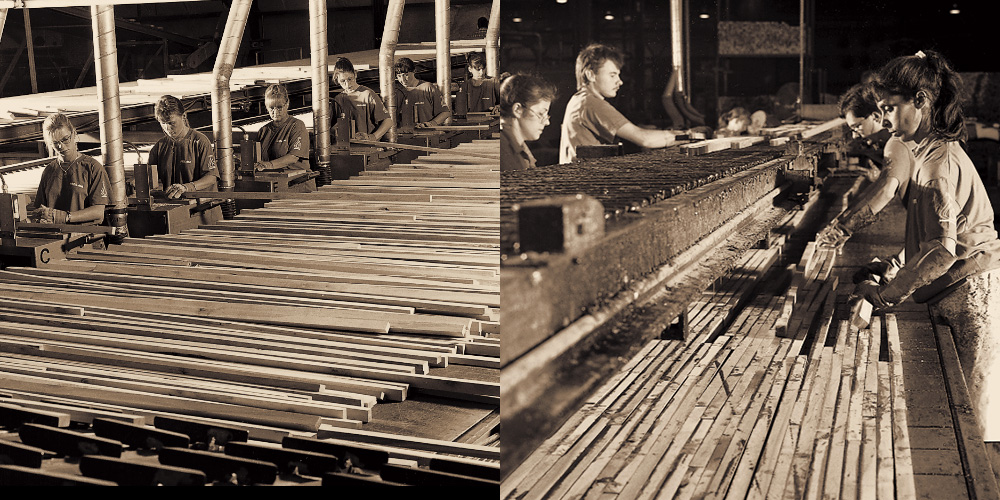
A: Hardwood trailer floors is a commodity product. And let’s face it, trailer floors were being made somewhat in a similar fashion since the 1950s. Frankly, you could hardly tell one trailer floor from another. But when you think about it, it shouldn’t be so. For an example, the different goods that are transported, such as food items or heavy-duty products, have different transportation needs. Your trailer floor would need to be able to sustain a lot of pressure when transporting paper rolls, but wouldn’t need a completely aseptic environment as you would for transporting food. Back in the early 2000s, we looked at the varied needs in the transportation submarkets and the team at Prolam decided it was time for a change.
We started by listening to the needs of our customers. After that, we visited tons of dry van trailer yards across North America. We took a look at old dry vans and scrapped trailer floors. We were obsessed to learn about everything than damaged them. What caused them to deteriorate over time? What could be done to improve durability?
And then it hit us—twice. First, we noticed water seeping through the joints on rainy days. Moisture penetration was bound to cause wood degradation. Second, conducting fatigue tests, we noticed that the shape of convention hook joints actually accelerated fatigue and were not optimal in stopping the water from coming through.
You see, back in the day, customers were concerned about trailer floor durability. Everyone was talking about how one wood species was better than another. But at the end of the day, what was truly impacting durability wasn’t the wood species at all. All hardwood species currently used to make trailer floors in North America work very well. Durability is related to other factors, such as using the right manufacturing process with quality control and the right type of glue. There is also damage caused by ill-designed joints that let water drops seep into the wood floors and facilitate water retention. Finally, the design of the trailers itself allows the water to drain out especially around the rear doors of the trailers.
A: Right after gaining perfect control over our manufacturing process, which was around the beginning of the 21st century. We focused our R&D efforts on finding solutions to fight the worst enemy of hardwood trailer floors: moisture penetration.
We started by developing our Zig-Zag finger-joint design and assembly technology. Contrary to traditional hook joints, which water spray can penetrate through capillary action, Prolam’s Zig-Zag design does not let moisture seep as much into the joint. Let’s not forget that trailer floors have an average of 2 000 joints across their length, which are the weakest points of your floor. If water penetrates the joints, the structural integrity of your floor may be compromised. What’s more, our innovative joints spread out the stress from repeated load movements, which makes Prolam’s floors much more resistant to wear and tear.
With Zig-Zag joints out in the market, we proceeded in developing the P.U.R, which is our hot-melt polyurethane undercoating, and then Waxin, a solid paraffin wax treatment for the top of trailer floors. Both solutions were designed to protect the wood from intense weathering effects and fluctuating moisture levels caused by outside conditions. They create a virtually waterproof barrier. Our Waxin and P.U.R treatments significantly extended the useful life of trailer floors compared with conventional floor protection, like varnish, polyurethane and other products like linseed oil, which, in our point of view, are actually better for in-house wood appliances than trailer floors.
With the combination of Zig-Zag, Waxin and P.U.R, we have answered the market with the most effective solutions against water penetration to your dry van flooring.
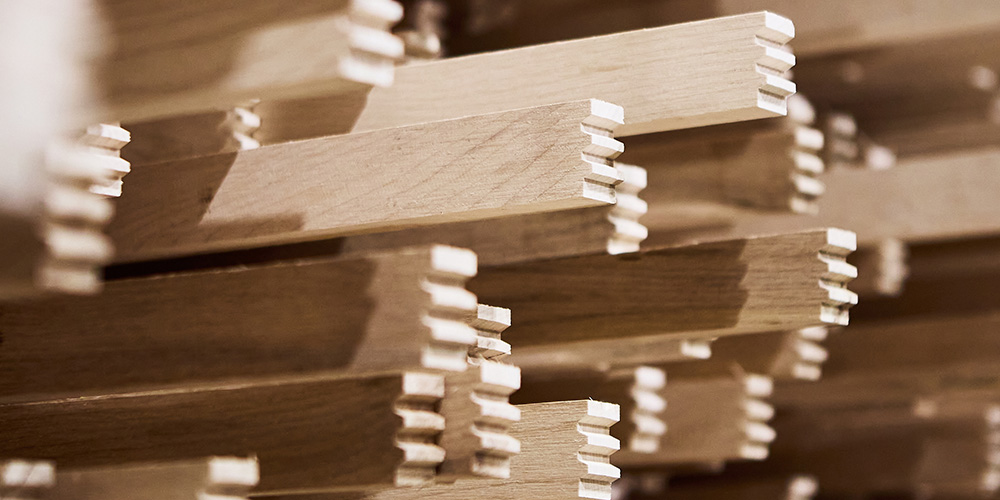
A: Some Fleet owners invest a lot of money in their fleet. For a minimal cost, they can use our solutions and extend their fleet’s useful life from 8 or 10 years to 15 or even 20 years. Our floors require minimal maintenance. That is huge savings in CAPEX and OPEX, for one. And also, dry vans with Prolam floors’ moisture protection have excellent resale value. All of that is cold hard cash right back into fleet owners’ pockets.
A: Indeed it is. We don’t just innovate to sell something to customers. We don’t design solutions that customers don’t need. Our R&D strategy is to find ways to work smarter and broaden our skills and know-how. When R&D is driven solely on customers’ expressed and very specific needs, while profoundly important, development teams develop tunnel vision. Opportunities can be missed when you can’t see the forest for the trees. Eureka moments often happen when you least expect it and when you’re not even looking for them.
A: Sure, we take a look at the competition and trends in the market. But again, obsessing on what exists already doesn’t take a business too far from an innovation standpoint. We prefer focusing on observing what is happening to trailer floors on the road and listening to our customer’s experiences in the fields to find ingenious ways to maximize their performance and lifecycle. We also invest a lot into educating our customers as to why our innovations can better their bottom line.
A: There are multiple factors that got us to where we are today, but I believe two of these factors made the most difference.
First, I have always said that Prolam’s success occurs when customers have success with our products. Our customers are very important at Prolam as, without them, we would not exist.
Secondly, I truly think that the best asset at Prolam is our team. We could have the best equipment, the best production approach, the best products to sell, etc. However, if we didn’t have dedicated employees who have their hearts in the right place, we definitely would not be here now. At Prolam, we all have that inner fire.
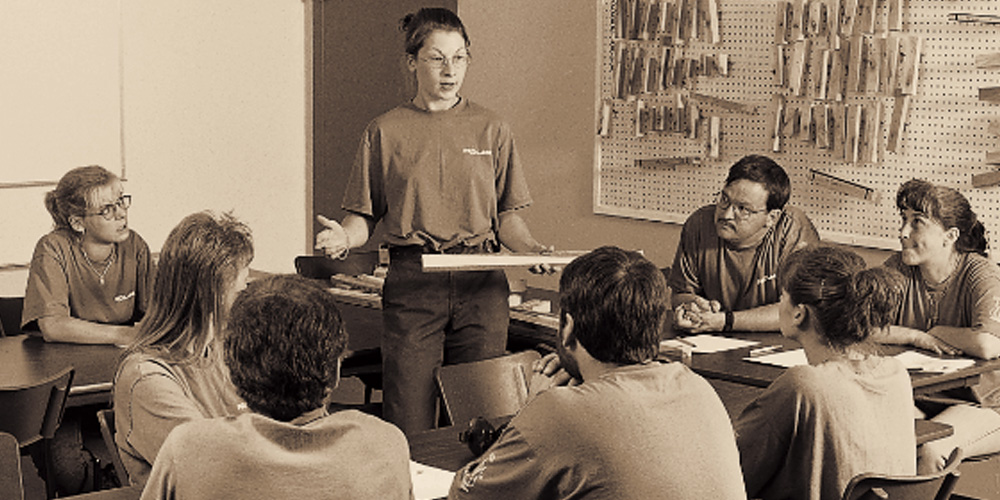
A: Oh, we have a lot of exciting projects in the works. For now though, you’ll have to stay tuned. We’re still in the ideation phases, but we hope our new innovations will hit the market very soon!
To discover everything there is to know about our products, consult our Zig-Zag, Waxin and P.U.R webpages.
To get all the latest Prolam news, follow us on social medias. Facebook, LinkedIn and YouTube.

Read about Prolam’s history from the Nilus Leclerc time to today in an interview with Benoit Risi, Prolam’s General Manager.
Read more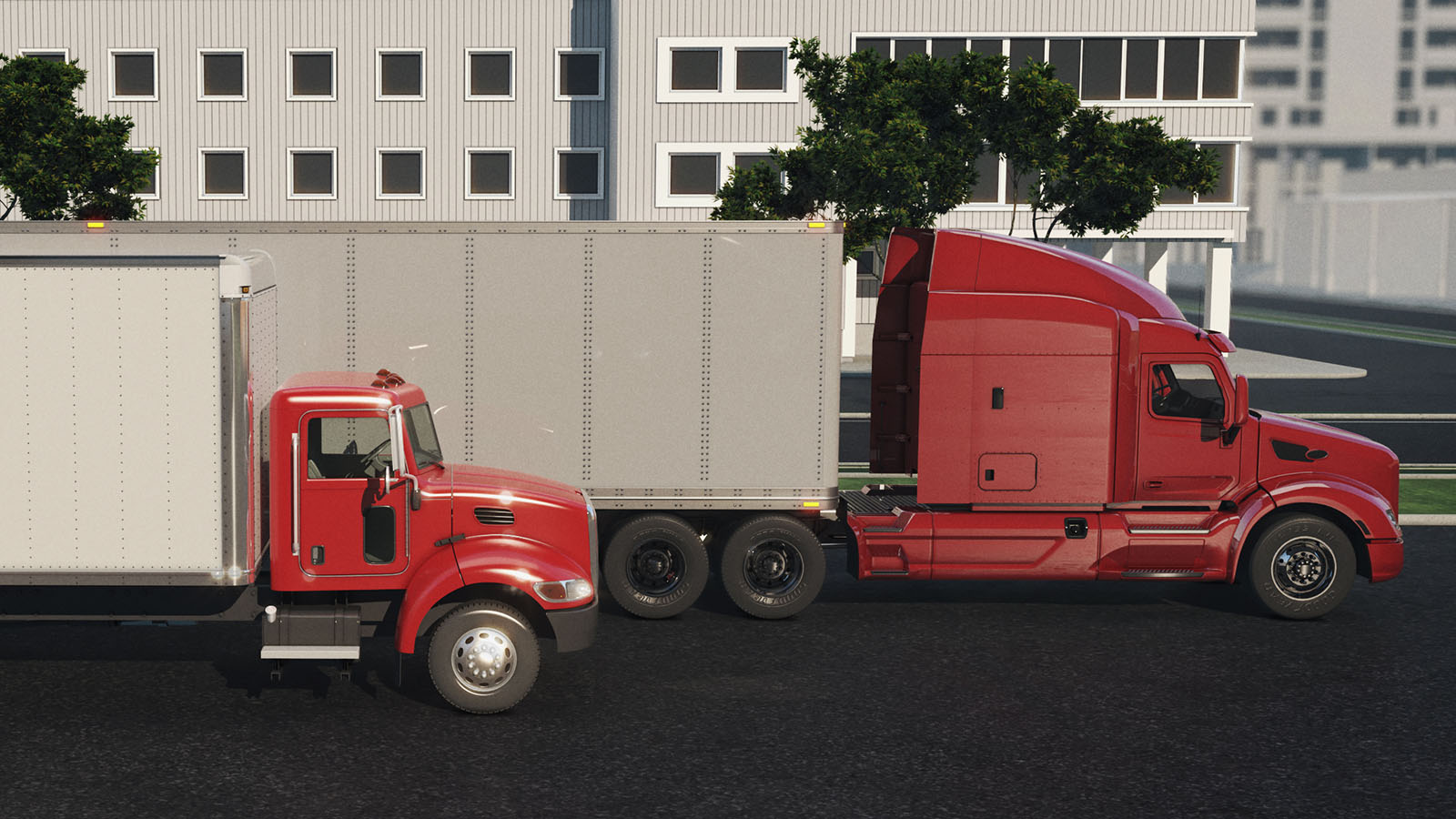
When purchasing a semi-trailer, you’ll need to make choices in terms of its options and specifications. Several technical details must be taken into consideration in order for your semi-trailer to meet your transportation needs. One of the important details to consider is the semi-trailer floor system’s capacity (floor rating).
Read more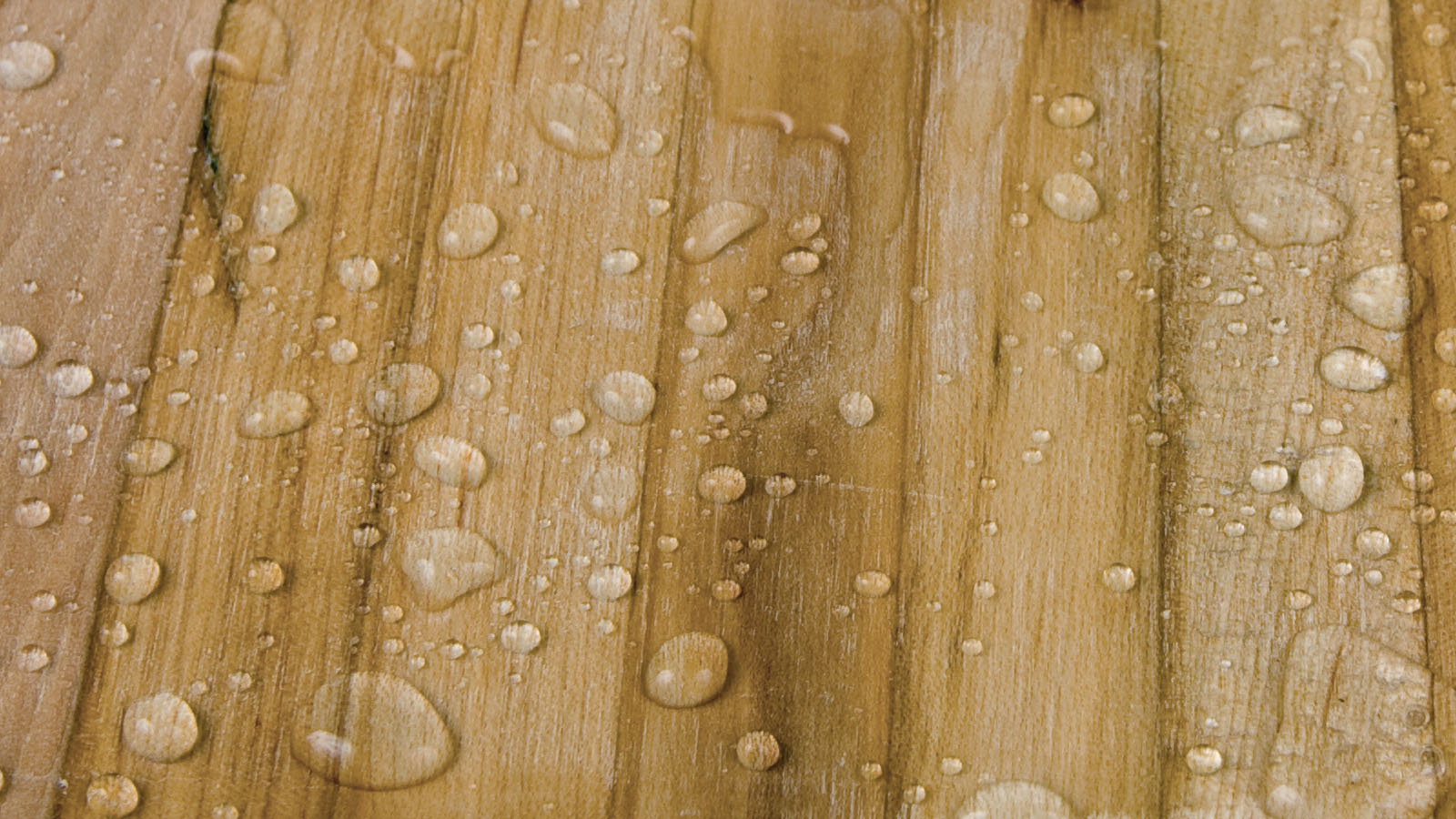
The transportation industry is constantly looking for ways to reduce its operating costs. What is the solution to achieve this goal? Maximize the useful life of the equipment. For a trailer floor to last, it is important to protect it from its worst enemy: water.
Read more